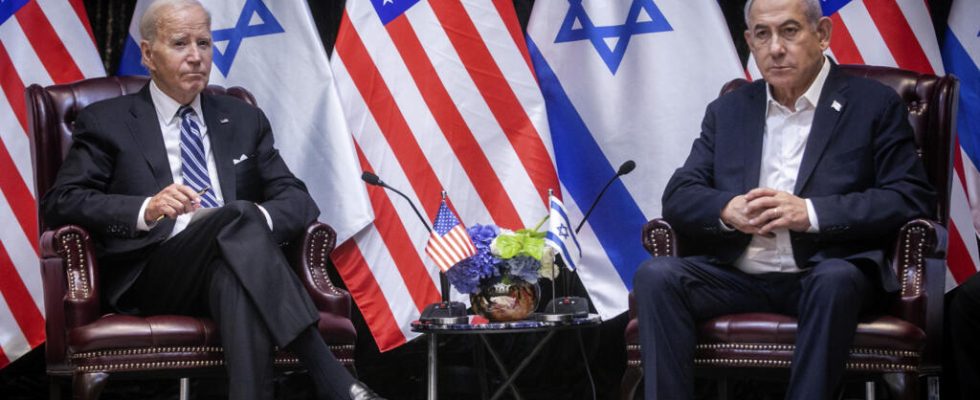The Israel/United States relationship is particularly turbulent, against the backdrop of the deadly war in the Gaza Strip. In recent days, Washington has released new military aid of $13 billion for Israel, but this staggering amount does not hide the extent of the disagreements between the two allies.
3 mins
From our special envoy in Jerusalem,
This big American check was totally obscured by other information coming from Washington : for the first time the United States could sanction an army battalion Israeli for abuses committed against Palestinians, in West Bankin 2022. And therefore well before the war in Gaza.
There is no official announcement yet in the United States, but already a political storm in Israel, with Prime Minister Benjamin Netanyahu saying he is ready to “ to fight » against these sanctions.
“ There are still red lines that we do not cross and, for me, precisely, this idea of sanction against a military unit is still a red line, comments Boaz Bismuth, Israeli MP from Likud, Netanyahu’s right-wing party. And there, I think that the Americans, a little bit, are entering a domain that is not theirs. I think that Israel’s role is to tell the Americans: there is a red line that you have crossed. I think the relationship is very strong, the relationship can even withstand disagreements that can be serious, like this one, but it’s still unheard of. »
Over the weeks, the United States tries to reconcile pressure and support for Israel, arms support, direct military support, even when Israel has been targeted by Iranian missiles and drones eight days ago and the American army took action to shoot down these devices.
Read alsoAfter the attack in Iran, the Israeli population remains calm
Washington’s risky bet
But pressures which actually materialize, notably when the United States sanction violent Israeli settlers. Just last week, the list of people and organizations targeted by these sanctions was extended. The Biden administration’s gamble, it seems, is to exert its pressure mainly on the Israeli Prime Minister and his far-right allies.
A risky bet, as Israeli sociologist Perle Nicole-Hassid notes: “ The Israelis, like any people in the world, I think, when they have the impression that their government is being dictated to from the outside, their response is a basic nationalist response. And, in fact, they want their government to respond to their needs and not necessarily those of their allies abroad. And so, in fact, some international pressures are completely counterproductive, because in fact, they only strengthen the Israeli government. »
For weeks, Israeli Prime Minister Netanyahu has been promising a major offensive on Rafah in the Gaza Strip and the United States has continued to say that it is opposed to it. It is in Rafah that Washington’s capacity to influence or not influence Israel’s conduct of the war is measured today.
Read alsoWar in Gaza: Residents fear threat of attack in Rafah
